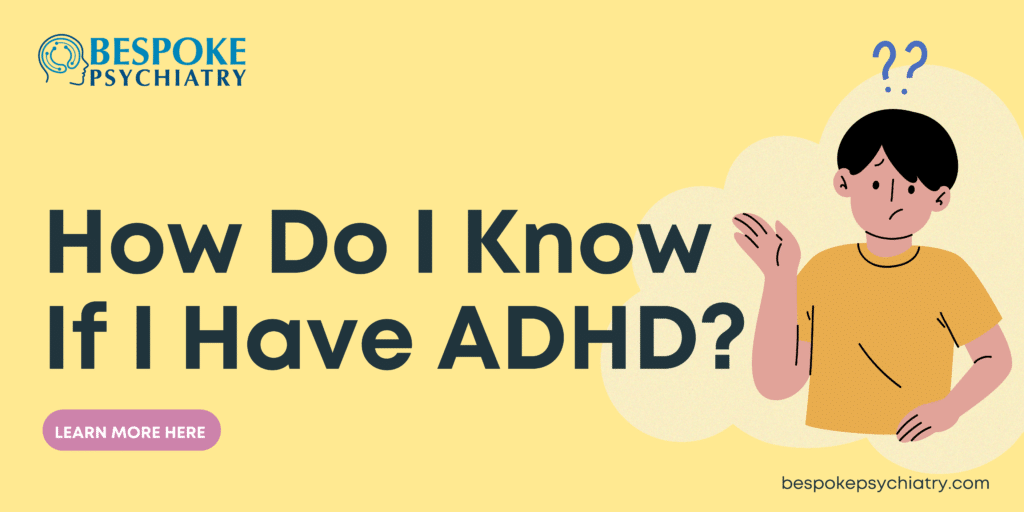
Attention-Deficit/Hyperactivity Disorder (ADHD) is a neurodevelopmental condition marked by persistent patterns of inattention, hyperactivity, and impulsivity that can interfere with daily functioning. Although it is often diagnosed in childhood, ADHD can continue into adulthood. Many adults may not even realize they have it, which is why understanding the signs and symptoms is essential. Here, we provide simple guidelines based on the American Psychiatric Association (2022). However, these are just guidelines, and consulting with a healthcare provider is the best way to get personalized care.
Common Symptoms of ADHD
ADHD symptoms are typically categorized into two primary domains: inattention and hyperactivity/impulsivity. To meet the criteria for an ADHD diagnosis, these symptoms may have been present since childhood and must significantly affect daily life.
Inattention:
- Difficulty sustaining attention in tasks or activities.
- Frequently making careless mistakes in work or other activities.
- Appearing not to listen when spoken to directly.
- Difficulty organizing tasks and activities.
- Frequently losing items needed for daily tasks (e.g., keys, wallets).
Hyperactivity and Impulsivity:
- Fidgeting with hands or feet or squirming in their seat.
- Difficulty remaining seated in situations where it’s expected.
- Talking excessively or blurting out answers before questions are finished.
- Interrupting or intruding on others’ activities or conversations.
- Struggling to wait their turn in lines or structured settings.
How ADHD Feels
Many people with ADHD describe it as having a mind that is constantly racing. Tasks that require sustained attention may feel overwhelming, often leading to frustration or a sense of underachievement. It’s important to note that ADHD can look different for everyone, and these feelings may vary from person to person.
Recognizing ADHD in Adults
In adults, ADHD symptoms can appear as:
- Chronic disorganization or procrastination.
- Difficulty maintaining focus at work or in personal relationships.
- A history of poor academic or job performance despite putting in significant effort.
- Impulsivity that affects finances, decision-making, or social interactions.
If you think you might have ADHD, consider taking these steps:
- Reflect on Childhood Symptoms: ADHD often appears early in life. Think back to your school years—were any of these symptoms noticeable back then?
- Assess Daily Impacts: To meet the diagnostic criteria, symptoms must significantly impact your functioning in two or more settings (e.g., home, work, or social situations).
- Consult a Mental Health Professional: The best way to know for sure is to consult a professional. A psychiatrist, Nurse Practitioner, or Physician Assistant can conduct a comprehensive evaluation using structured interviews, behavioral assessments, and ADHD-specific rating scales. Consult with Bespoke psychiatry if you are concerned that you may have ADHD. Click HERE to become a new patient.
Evidence-Based Treatment Options
Effective treatment plans for ADHD often include a combination of the following:
- Medication: Stimulants (e.g., methylphenidate, Adderall) or non-stimulants (e.g., Bupropion) may be prescribed to help manage symptoms.
- Behavioral Therapy: Cognitive Behavioral Therapy (CBT) can be helpful in addressing coping strategies, organizational skills, and time management.
- Environmental Modifications: Structured routines, task prioritization, and reducing distractions can support better management of symptoms.
When to Seek Help
If your symptoms are interfering with daily responsibilities, work, or relationships, reaching out to a mental health professional is a vital next step. ADHD is a highly manageable condition with the right support and strategies. Click HERE to schedule an appointment with a mental health professional at Bespoke Psychiatry.
Final Thoughts
Recognizing ADHD is not about labeling—it’s about understanding how your brain functions and discovering effective strategies to thrive. ADHD is well-defined and, with the right treatment plan, manageable. If you suspect that ADHD might be affecting your life, don’t hesitate to reach out to us at Bespoke Psychiatry. We are here to guide you on your journey to clarity and empowerment.
Reference:
American Psychiatric Association. (2022). Diagnostic and Statistical Manual of Mental Disorders, Fifth Edition, Text Revision (DSM-5-TR). American Psychiatric Publishing.Medically Reviewed by Dr Jacob Fyda MD, Board Certified Psychiatrist, on December 19, 2024. Written by Gilma Villatoro.



